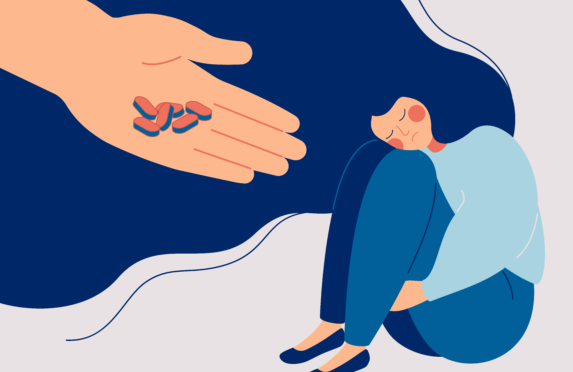
It is human nature to seek out an answer or explanation for life’s questions, worries and concerns – especially when it comes to our health.
So, what happens when your doctor can’t simply give you a diagnosis and a prescription? What happens when your chronic symptoms seem to have no explanation, and medical professions are – for lack of a better word – stumped by your case?
That was the agonising scenario faced by musician and author Sarah Ramey, who spent years shuffling between various doctors, specialists and hospitals in an attempt to find a remedy for what she now wryly describes as her “mysterious illness”.
Almost two decades ago, Sarah’s ordeal began quite suddenly with a urinary tract infection, a seemingly minor illness which, as the daughter of two doctors, she thought could be dealt with quickly.
But her initial symptoms soon turned into a prolonged battle which, at times, impacted her ability to live a normal life.
With intense aches in her muscles and joints, fatigue, pelvic pain, and a host of other complaints, Sarah was sure her doctors would find a way to ease her suffering.
“In the beginning, I kept thinking the situation was very bad, but I was very well taken care of – I’ll go to the doctor, they’ll figure it out, I’ll get through it, and it will all be fine,” explained Sarah, now 39, as she described her initial optimism.
“When yet another doctor couldn’t give me a diagnosis, I just kept thinking, ‘OK we’ll just go to the next person’.”
But, as each doctor failed to find a reason for her ill-health, the cause was eventually put back on to Sarah herself, with medical professionals hinting the cause of her symptoms were purely psychological.
Sarah said: “I remember the moment so well, even though it was 17 years ago.
“My doctor stopped talking to me completely, pretended like I wasn’t in the room, and told my parents it was time to consider that my problem, like so many other young women, was psychological.
“I felt like he had just stabbed me in the heart. I felt betrayed.”
For years, Sarah believed she was alone in her struggles but, as it turns out, she wasn’t the only “woman with a mysterious illness” – or WOMI, to use the word she devised to describe herself.
Sarah found there were millions of women around the world who were also being failed by the healthcare system – simply because their illness was unnamed or misunderstood.
“It took me a very long time to even meet someone who had gone through the same or similar experience.
“Once I did, it felt like being inducted into a secret society,” she said.
The connecting factor, Sarah discovered, was that each patient (more often than not, a woman) suffered from some form of autoimmune illness, such as fibromyalgia, chronic fatigue syndrome, Lyme disease, and chronic pain.
Despite instances of autoimmunity having tripled in the last 30 years, little is known about why the body’s defences attack itself, or why 75% of autoimmune patients are female.
Hoping to help others in the same situation, Sarah decided to document her story, detailing what she learned along the road to an eventual diagnosis. This culminated in writing her darkly funny and fascinating book, The Lady’s Handbook For Her Mysterious Illness, which is published at the end of this month.
Described as a “memoir with a mission” Sarah’s says her book is the guide she wishes she had in her early 20s when her journey began, with each chapter working as a call for change in how we treat chronic illness.
“If we keep entertaining this wrong idea in conventional medicine that people like me are just hysterical malingering shrews, we are all going to waste so much time and money and heartache,” explained Sarah, who was eventually diagnosed with CRPS (complex regional pain syndrome), a poorly understood condition which causes persistent, severe and debilitating pain.
“It doesn’t matter that we don’t exactly understand what’s going on, and it doesn’t matter that we don’t have treatments for all these problems.
“What matters is putting a protective shield around patients, so they are, at the very least, not harmed by being told they have a psychosomatic problem.
“Being told you are the problem is so damaging, but we can change it pretty quickly.”
The Lady’s Handbook For Her Mysterious Illness, Fleet, published April 30, priced £18.99.

Enjoy the convenience of having The Sunday Post delivered as a digital ePaper straight to your smartphone, tablet or computer.
Subscribe for only £5.49 a month and enjoy all the benefits of the printed paper as a digital replica.
Subscribe